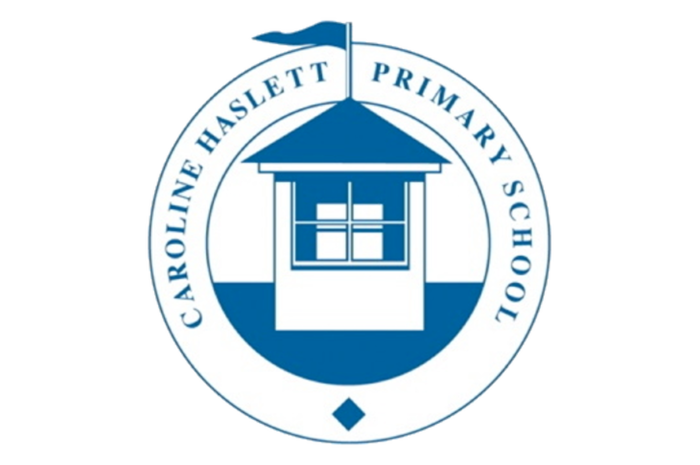EYFS Overview
At Caroline Haslett we are determined to foster an environment that enables our youngest learners to be happy and motivated. We aim for children to be excited, enthused and to think and work creatively. We nurture children in order for them to feel secure, valued and respected. This enables them to flourish both socially and academically.
The Early Years Foundation Stage Curriculum
The Early Years Foundation Stage (EYFS) sets the standards for learning, development and care for children from birth to five.
The statutory framework for the Early Years Foundation Stage contains the legal requirements and statutory guidance which we follow.
There are four overarching principles for the EYFS. These are:
-
Every child is a unique child
-
Every child is a competent learner from birth who can be resilient, capable, confident and self-assured.
-
Children can learn to be strong and independent through positive relationships.
-
Children learn and develop well in enabling environments in which their experiences respond to their individual needs and there is a strong partnership between practitioners and parents or carers.
Children develop and learn in different ways and at different rates. The framework covers the education and care of all children in the early years including children with special educational needs and disabilities.
Learning and Development
There are seven areas of learning and development.
All areas are important and interconnected.
The prime areas are:
-
Communication and Language- Encouraging talking and listening
-
Physical development - Physical control, mobility, awareness of space and manipulative skills in indoor and outdoor environments. Establishing positive attitudes towards a healthy and active way of life.
-
Personal, social and emotional development- Learning how to work and play, co-operate and function in a group, develop personal and moral values, understand themselves and others.
The children are also supported in four specific areas, through which the prime areas are strengthened and applied.
These specific areas are:
-
Literacy- encouraging children to be confident and independent readers and writers.
-
Mathematics- Mathematical understanding and the foundations of Numeracy, with a focus on practical maths.
-
Understanding of the world - Finding out about the world around them, other people. These become a foundation for History, Geography, Technology and Science
-
Expressive arts and design- The development of imagination and the ability to communicate and to express ideas and feelings in creative ways.
We consider the individual needs, interests and stage of development of each child in our care and use this information to plan a challenging and enjoyable experience for each child in all areas of learning and development.
At the end of the year an EYFS profile is completed for each child. Each child is assessed in relation to the 17 Early Learning Goal (ELG) descriptors.
The Foundation Stage setting at Caroline Haslett has a self-contained, well planned outdoor area with spaces for sand play, water play, digging, running, bike riding, writing, reading and general play. The children have access for free-flow between the outdoor and indoor areas.
Play underpins the delivery of all the EYFS. Young children learn most effectively through structured play. We plan to ensure all seven areas of development are covered in an interesting, stimulating and supportive framework. We make sure the children progressively develop their skills and knowledge throughout this phase of their school life. The children are taught directly and also have a choice of planned activities so that they are able to develop independent learning habits. We actively encourage them to initiate their own activities.
We are very fortunate to have a large indoor and outdoor area for them to use and explore.
Indoors
-
Reading area
-
Role play area
-
Small world
-
Construction area
-
Writing table
-
Fine and gross motor
-
Maths and Puzzle table
-
Art table/messy play
-
Junk modelling
Outdoors
-
Bikes and scooters
-
Climbing equipment
-
Play houses
-
Reading den
-
Wildlife/wooded area
-
Water play
-
Sand play
Home- School partnership
We endeavour to foster strong links between home and school from the start. This has a positive impact on children’s development and learning. A successful partnership needs a two-way flow of information. This is most often done informally on a day-to-day basis after school, as well as through more formal consultations.
A Typical Day in Foundation Stage
Gate opens at 8.35am and closes promptly at 8.50am
(Children go to the playground until 8.50am)
8.50 -9.00 Into class. Greet, circle time, early work, story and registration
09.00 -09.30 Lesson (Usually Phonics)
09.30 - 11.20 Continuous Provision (Busy time/ Play time)
Children access activities in all areas; ‘free flow’ indoor and out
During this time, children will be offered milk and a fruit snack (provided by school).
11.20 - 11.50 Lesson (Usually Maths or Literacy)
11.50 - 12.00 Story
12.00 - 1.00 Lunchtime / Playtime
1.00 - 1.10 Register, story
1.10 - 1.30 Lesson (Usually Understanding the World, PE, Music, PSED etc.)
1.30 - 2.30 Continuous Provision (Busy time/ Play time)
Children access activities in all areas; ‘free flow’ indoor and out
During this time, children can eat snacks (provided from home, i.e. apple, banana)
2.30 - 3.00 Get ready for hometime. Story/singing/circle time
This is an example of a typical day. Of course, not every day will look exactly like this.
Lunch
All children are entitled to a universal infant free school meal. Alternatively, you can supply a lunch box for your child from home. No fizzy drinks or sweets please, and absolutely no nuts. Children are encouraged to have water throughout the day.
